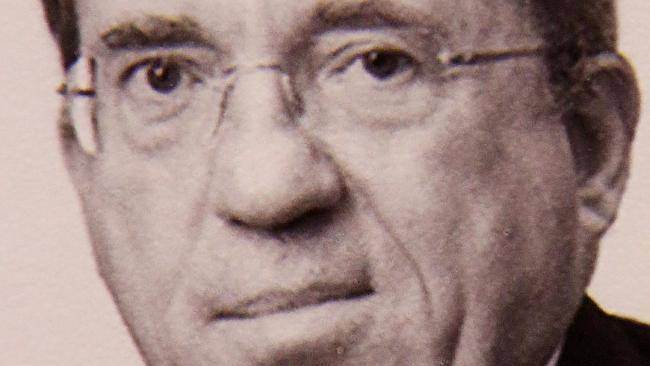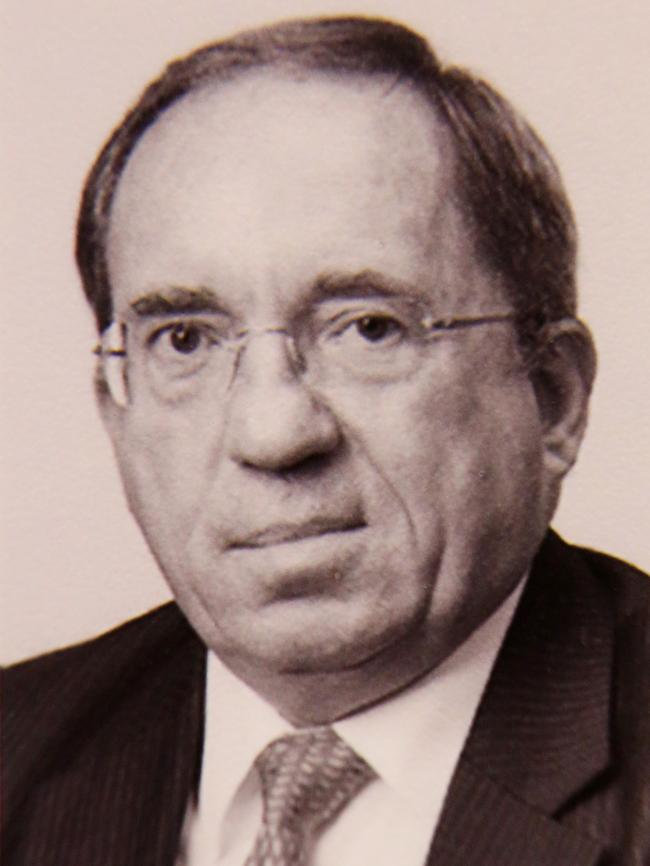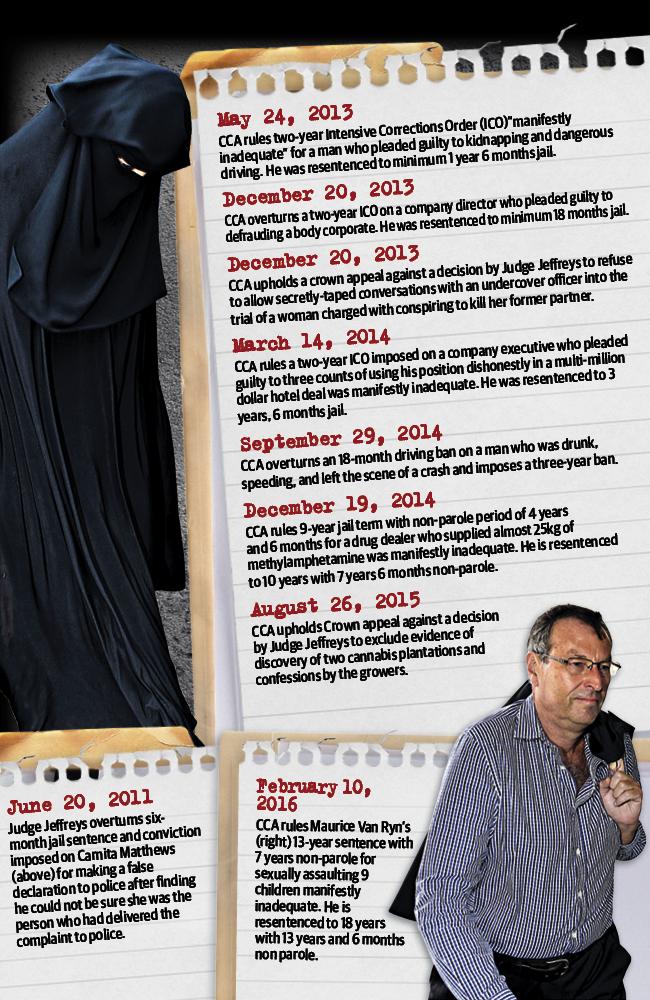Judge Clive Jeffreys’ fails of justice: ‘Manifestly inadequate’ sentences overturned
THIS is Clive Jeffreys, the District Court judge whose sentences have been repeatedly overturned as “manifestly inadequate”.

NSW
Don't miss out on the headlines from NSW. Followed categories will be added to My News.
- Paedophile Maurice Van Ryn’s sentence increased after prosecutor’s appeal
- Shortage of judges in Family Court and Federal Circuit resulting in 3 year delays
THIS is Clive Jeffreys, the District Court judge whose sentences have been repeatedly overturned as “manifestly inadequate”.
One of his sentences to receive that description was the jail term handed to Bega paedophile Maurice Van Ryn, which was almost doubled by the Court of Criminal Appeal earlier this month.
In another case, he was found to have wrongly banned a disqualified drunken speeding driver — who left a friend a paraplegic in a crash — from driving for just 18 months instead of the three years sought by the prosecution because he lived in the country and it was harder for him to get a bus.

The driver escaped jail and was made subject to a 20-month Intensive Corrections Order.
“The prospect of the respondent driving a motor vehicle represents an unacceptable danger to both metropolitan and country drivers and pedestrians,” appeal court judge Justice Robert Beech-Jones said when increasing the driving ban to three years.
After just three months on the bench, the controversial judge overturned the jail sentence handed down to Carnita Matthews on charges of making a false statement to police, because he could not be sure it was her inside the burqua.
He has also been criticised by the higher court after he excluded crucial police evidence in a conspiracy to murder trial and a drug trial.
Howard Brown of the Victims For Crime Assistance League yesterday called for Judge Jeffreys to be confined to the civil courts.
“If he wasn’t dreadful, he wouldn’t star so many times before the Court of Criminal Appeal,” he said. “Every time a sentence is handed down that is clearly inadequate, the victims have to go through the whole process again.”
Since his appointment in March 2011, Judge Jeffreys has had five sentences which were appealed by the DPP increased by the appeal court.
In two trials he was found by the appeal court to have wrongly excluded crucial police evidence.
One involved secretly taped conversations between an undercover officer and a woman charged with conspiring to kill her former partner.
SCROLL DOWN FOR MORE

Judge Jeffreys shot to prominence in June 2011 when he overturned the six-month jail sentence imposed on Ms Matthews.
The serial traffic offender was accused of making a statutory declaration to Campbelltown Police that an officer who pulled her over in June 2010 for not displaying P-plates was racist and tried to pull her full-face niqab from her head.
Police in-car video proved that was not the case, and Ms Matthews denied making that statement to police. The woman who made the statement was wearing a niqab.
Judge Jeffreys’ seven-year minimum jail sentence of former Bega Cheese boss Van Ryn, 59, for sexually assaulting nine children was appealed after Attorney-General Gabrielle Upton’s intervention.
The Court of Criminal Appeal almost doubled the non-parole period to 13 years and six months, with Justice Robert Hulme saying he was “of the view that the sentence is manifestly inadequate”.
“There were a number of specific errors made by the judge in his approach to sentencing which may explain the inadequacy of the sentence,” he said. “Even if the errors were not the cause of the inadequacy, the sentence is so unreasonable and plainly unjust that it amounts to an affront to the administration of criminal justice.”
“Like many in the community I was surprised at the original sentence given by Judge Jeffreys to Maurice Van Ryn,” Ms Upton said.
The District Court stood by the judge, saying he had presided over hundreds of criminal cases.
“Judge Jeffreys is a judge in good standing, experienced in the criminal law, and is currently sitting in the criminal jurisdiction. There is no intention that he will sit in the civil jurisdiction,” a spokesman said. “The sentencing process involves difficult decisions, about which sincere views can legitimately differ. In at least one of the cases where Judge Jeffreys was corrected, two appeal judges took one view, and one appeal judge took the opposite view.




